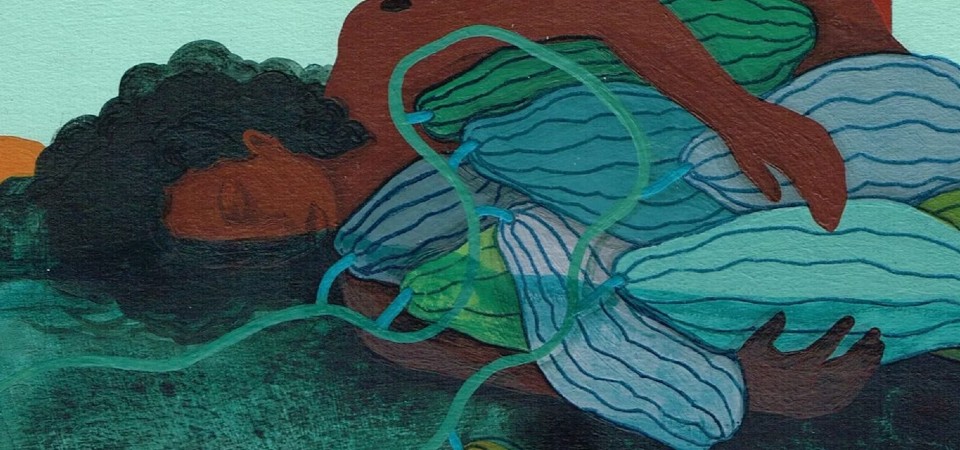Thirteen artists with ancestral lands in south Asia, Africa and the Caribbean are subverting the role that sketching and drawing have played in conquest and colonialism. Instead, they have reimagined it as a way to reclaim indigenous knowledge for environmental justice. Drawing on archival research, soundscapes, zines, ceramics, found objects and ephemera, the work on show dissolves the boundaries and lines between various media, questioning the institutionalisation of knowledge.
The exhibition draws on the concept of ecofeminism, first coined by French writer Françoise d'Eaubonne in her 1974 book Feminism or Death. Ecofeminism maintains that patriarchy and colonialism are inherently interlinked. The subjugation of women and marginalised people, which has severed their connection to the lands and the oppression of their myths and stories, has created an imbalance between nature and humans.
The exhibition opens with the work of Lado Bai, a Bhil artist from Madhya Pradesh in India. Bai combines traditional motifs with contemporary symbolism to show a deep connection to the natural world. The Bhil religion is deeply rooted in animism. Animism is the belief that everything from trees and rivers to rocks and animals possesses a spiritual essence and that these entities must be respected through rituals and offerings.
In the 1901 census, 97% of Bhils identified as animists, and they retain this connection through stories and folklore. This forms the basis of Bai’s work. Like so much of indigenous art from India, there is a deceptive simplicity to her work, but within the dots and lines, there is a deeper story of ancient knowledge. Every painting presents an episode in the larger story of Bhil ritual and tradition.
Another Indian artist on display is Manjot Kaur. Kaur reimagines the historical miniature paintings from Mughal art and Rajasthani tradition and uses anthropomorphism to challenge black-and-white thinking. It’s a hopeful response to the climate crisis and extinction. Not merely content with representing the traditional stories and rituals, Kaur is reimagining the mythologies for a post-queer world – a world where people no longer feel the need to define themselves through queer labels – or even a post-human one.
Continues…

For the full article by Pragya Agarwal visit the Conversation.
ENDS
